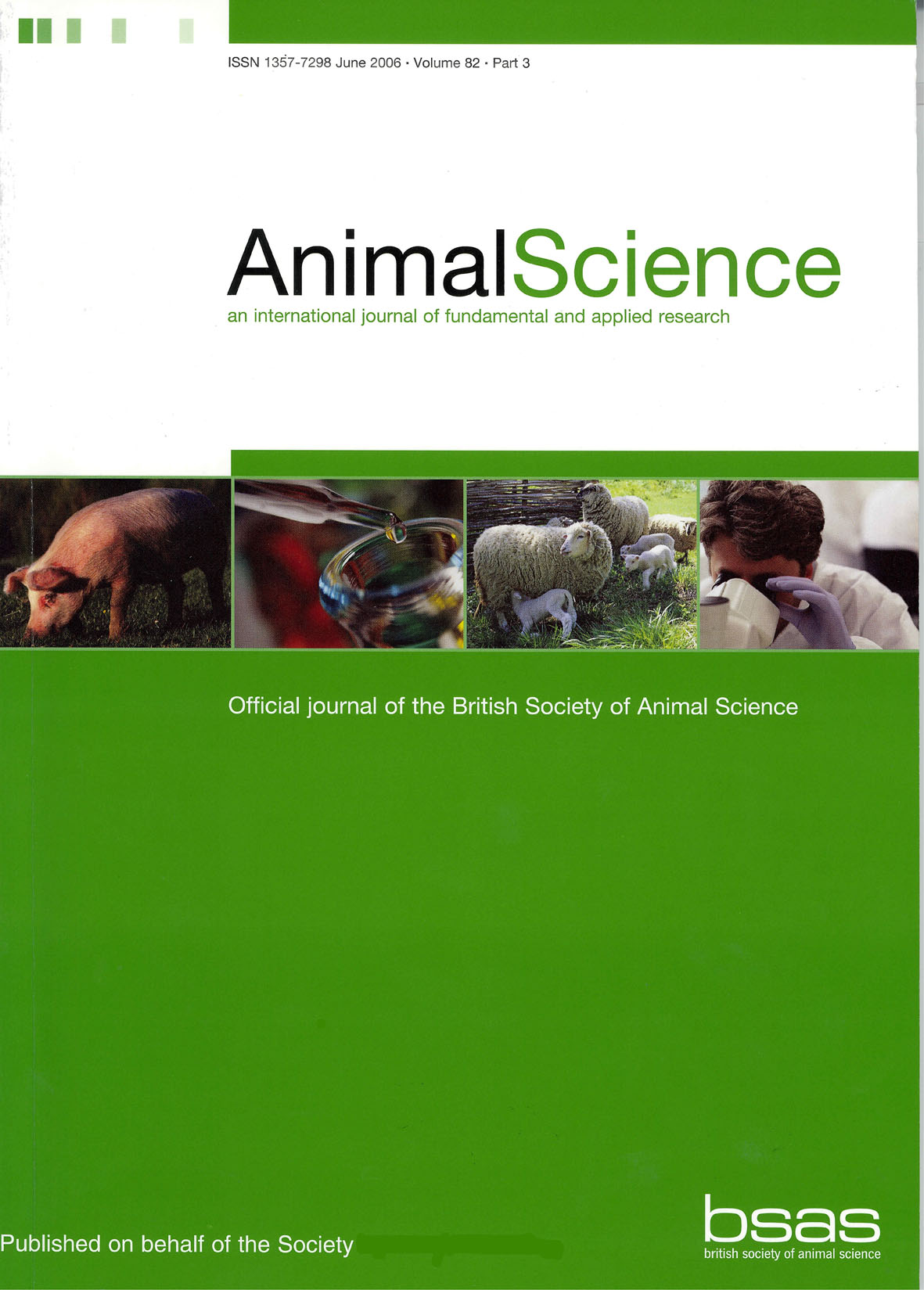Article contents
Responses of sheep to annual cycles in nutrition. 2. Effects of diet and endogenous growth hormone during replenishment
Published online by Cambridge University Press: 02 September 2010
Abstract
The rôle of growth hormone (GH) in normal growth is well established, but its rôle during recovery after live-weight loss in adults is less defined. This study examined the interaction of endogenous GH with energy or protein supplements during re-feeding of ewes in low body condition. Control ewes and ewes immunized against growth hormone-releasing hormone were housed in individual pens and given food below maintenance for 107 days, before re-feeding was initiated by supplementing half of each group with either fish meal or barley for 28 days (P1), after which the supplements were switched for a further 28 days (P2). Following supplementation, the ewes grazed abundant green pasture for 92 days before slaughter. Immunization reduced plasma concentrations of GH, insulin, insulin-like growth factor 1 (IGF-1) and prolactin. Production responses to the two food supplements were similar in the control and immunized ewes, but when grazed at pasture immunized ewes gained live weight more slowly (P = 0·06), grew less wool (P<0·01), and had heavier fat depots, but lighter carcass, skin and liver weights at slaughter. The sequence of re-feeding treatments affected subsequent wool production in both control and immunized ewes. During P2, and for 52 days after supplementation ceased, ewes supplemented with fish meal then barley (F/B) produced less wool (P < 0·05) than those supplemented with barley followed by fish meal (B/F). At slaughter, the F/B ewes had lighter omental and kidney fat depots than the B/F ewes (P < 0·05). It is concluded that during live-weight regain, endogenous GH initially affected fat deposition, which in turn affected food intake and wool growth. Furthermore, provision of supplements with a high protein to energy ratio to sheep in low body condition, followed by supplements with a low protein to energy ratio, caused a prolonged suppression of wool growth. This effect was not mediated by endogenous GH.
- Type
- Research Article
- Information
- Copyright
- Copyright © British Society of Animal Science 1996
References
REFERENCES
- 5
- Cited by


